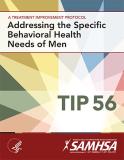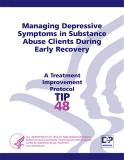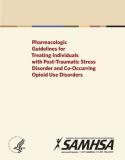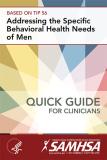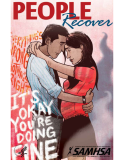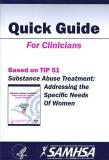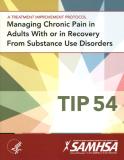
This guide equips clinicians with information for treating chronic pain in adults living with a history of substance use. The guide discusses chronic pain management, including treatment with opioids. It also includes information about substance use assessments and referrals. Access the literature review.
Units per Product
Download
TIP 54
File Type: PDF
File Size: 2.66 MB
Literature Review
File Type: PDF
File Size: 401 KB


